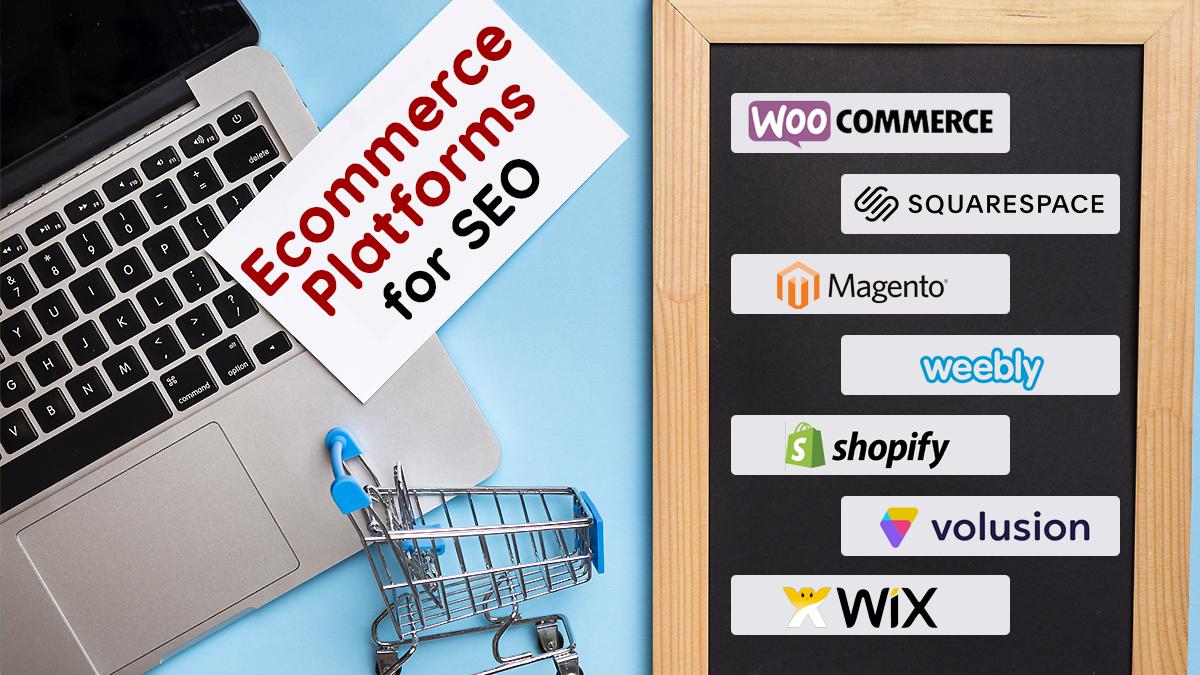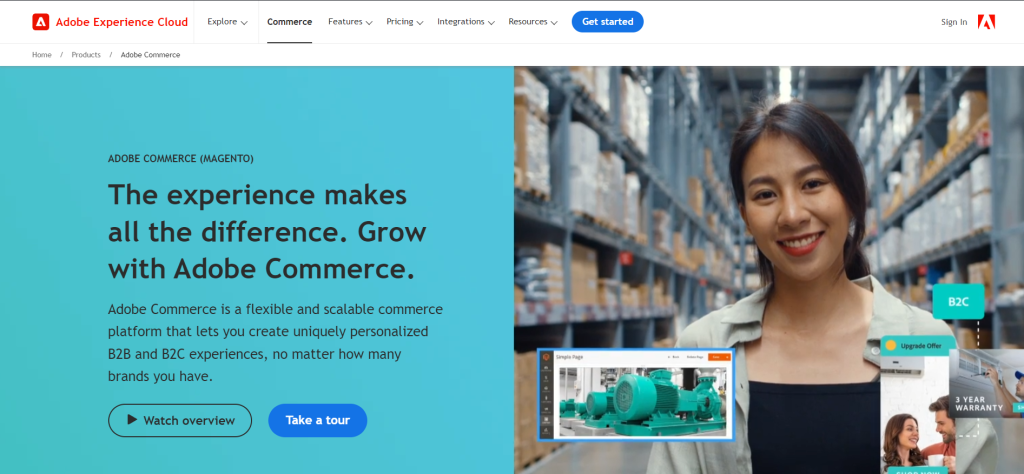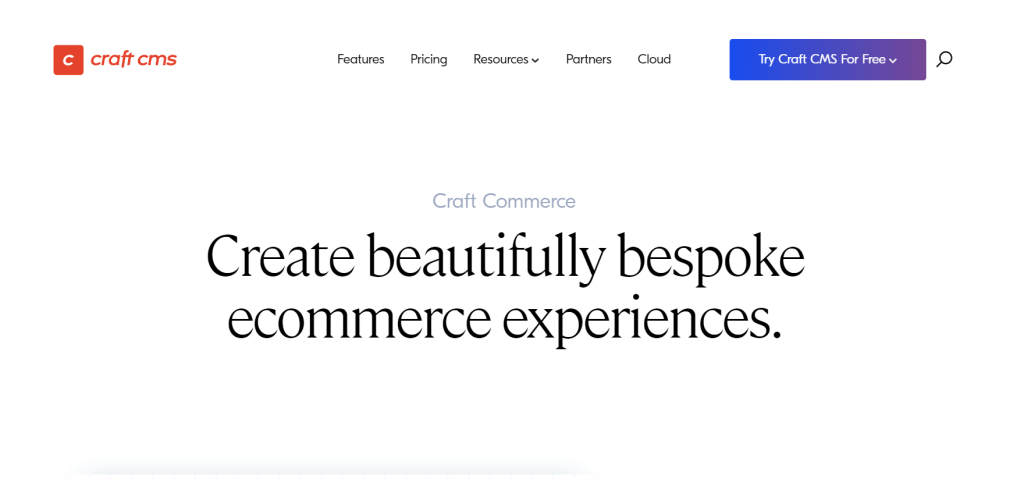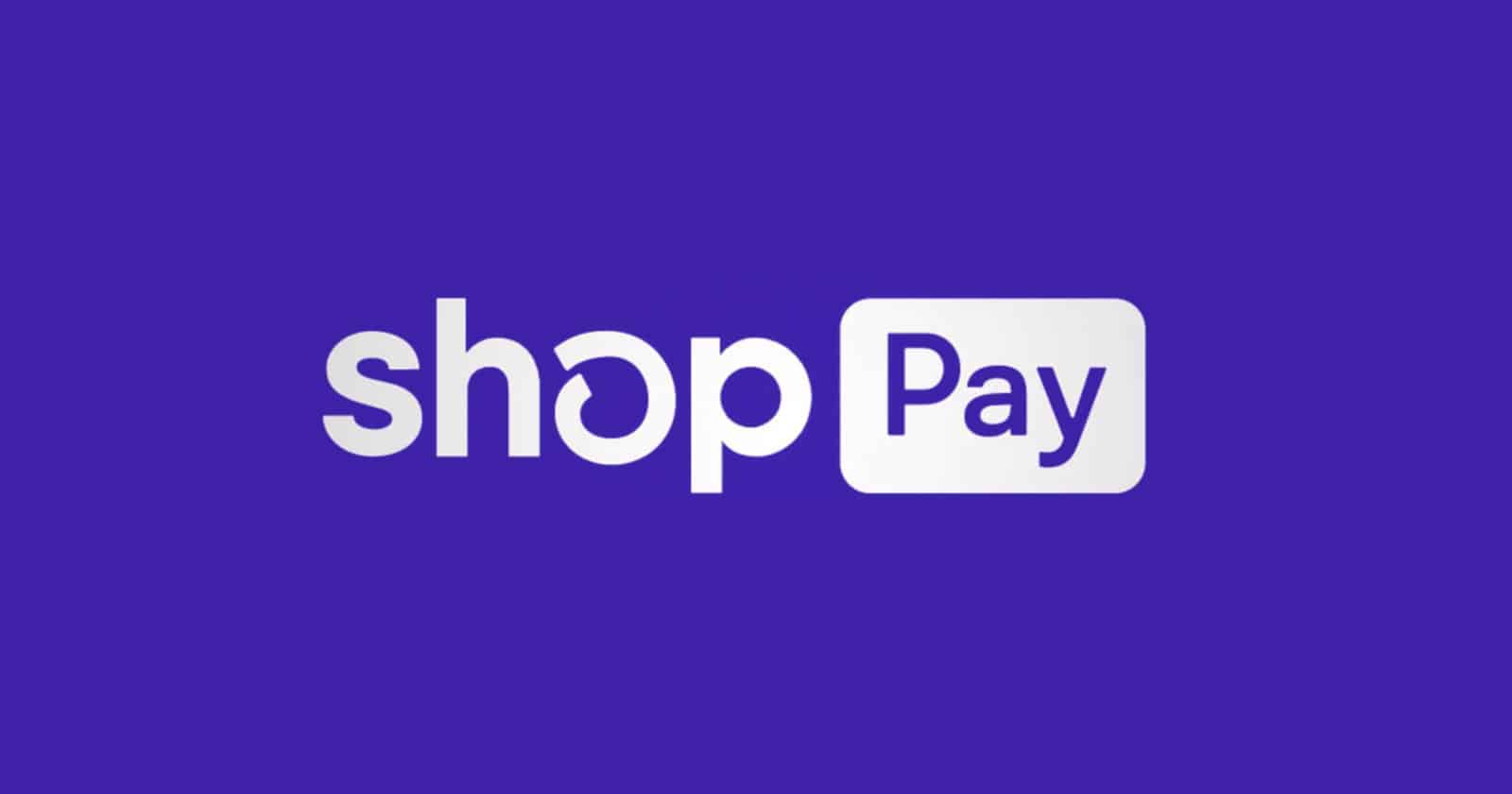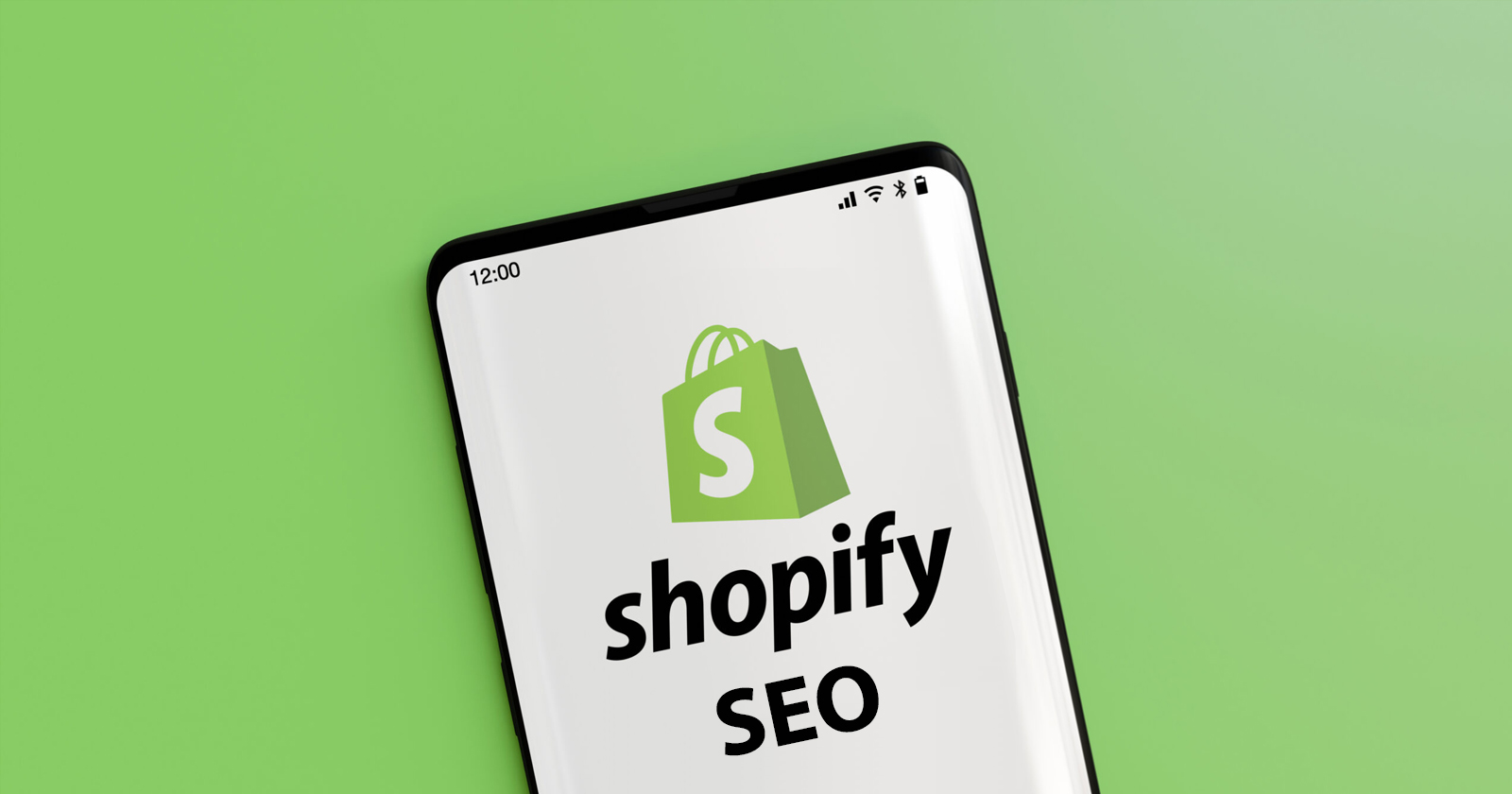In an online world where visibility is the linchpin of success, choosing the Best Ecommerce Platforms for SEO is not just a decision—it’s a pivotal strategy for your online store’s metamorphosis. Imagine a digital marketplace where your store shines the brightest, not by chance, but by design. The foundation of this brilliance? A robust ecommerce platform, optimized to cut through the cacophony of the digital bazaar, ensuring your products don’t just exist but stand out.
Now, consider the transformative journey of your online store, elevated from the ordinary to the extraordinary, by harnessing the power of the nine best ecommerce platforms known for their SEO prowess. These ecommerce platforms are not just tools; they are your allies in the relentless pursuit of digital prominence.
As we delve deeper into the nuances of these platforms, prepare to embark on a journey of digital enlightenment, where each platform is a beacon guiding you towards unparalleled online visibility. Embrace this opportunity to transform, to ascend, and to realize the zenith of your online store’s potential.
Top SEO-Friendly E-Commerce Platforms In 2025
Choosing the right platform for ecommerce SEO is crucial for the success of your online business, whether you’re launching your first venture or expanding an existing one. The platform you opt for significantly influences your ability to attract potential customers and the overall efficiency of your business. Always ask your ecommerce SEO service provider for recommendations. Below are some platforms that cater to specific needs:
- WooCommerce: Recognized as a top choice for ecommerce SEO.
- BigCommerce: The leading e-commerce platform in terms of popularity.
- Shopify: Renowned as the optimal e-commerce platform for startups.
- Wix: The go-to e-commerce platform for enterprise market automation.
- Squarespace: Distinguished as the best e-commerce SEO platform for design.
- Volusion: Optimal for streamlining e-commerce operations.
- Adobe Commerce (Magento): The preferred choice for e-commerce developers.
- Weebly: Well-suited for small businesses.
- Craft Commerce: Tailored for bespoke e-commerce solutions.
WooCommerce
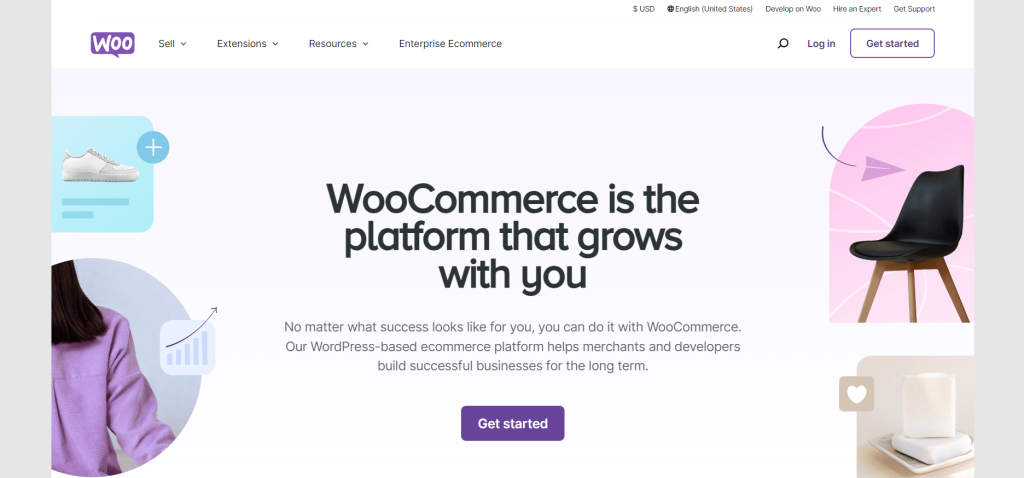
WooCommerce serves as an e-commerce platform with a focus on effective SEO strategies and cost-effectiveness. It functions as a WordPress plugin, converting your website into a practical online store for selling both physical and digital products and services.
Key features include:
- SEO-friendly design, contributing to improved search engine rankings.
- User-friendly interface for easy navigation and a smooth customer experience.
- Extensive customization options to align your store with your brand.
WooCommerce provides comprehensive SEO management capabilities, covering aspects such as title tags, meta descriptions, product details, and URLs. Additionally, its integrated blogging tool supports content creation to further enhance SEO.
Pricing: The platform is free, with an option to upgrade to a Premium plan. Hosting starts at $6.95/month, and the domain name is priced at $15/year.
BigCommerce
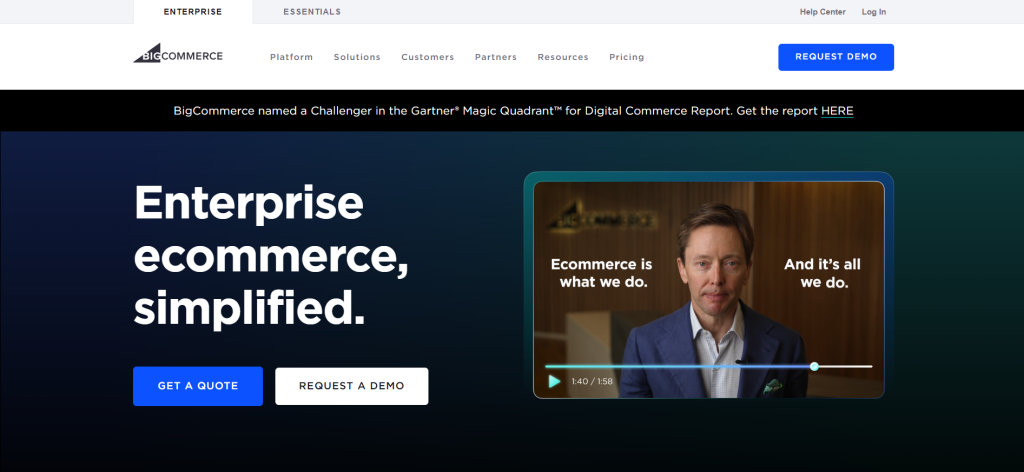
BigCommerce emerges as the preferred e-commerce SEO platform, combining popularity with SEO-friendly features. Noteworthy brands such as Skullcandy, Rebecca Minkoff, and Hilton Hotels capitalize on its capabilities.
Key features include:
- An integrated SEO tool for efficient site optimization and improved search engine rankings.
- Diverse plugins and themes allow you to tailor your store to your preferences.
- An intuitive interface that makes navigation easy for consumers, helping them find what they’re looking for.
Pricing: the platform offers various options, including Enterprise programs. Notable among these are the Standard plan ($29.95/month), the Plus plan ($79.95/month), and the Pro plan ($299.95/month).
Shopify

Shopify serves as an accessible e-commerce platform favored by major brands such as Tesla, Red Bull, and Nest. Shopify plugin enriches SEO through features like social sharing buttons and blogging capabilities, including controls for indexing and essential tools for a website’s sitemap.
Shopify provides a range of plugins to augment your site with additional features. For example, the Yoast SEO plugin assesses your site and offers tips for improving SEO. For efficient tracking of traffic and sales, seamlessly integrate your Shopify shop with Google Analytics. The platform also offers comprehensive information and an active online community for issue resolution.
Pricing: Shopify presents three plans: Basic, Shopify, and Advanced, costing $29, $79, and $299 per month, respectively.
Also Read: Hire Smart: The Definitive Checklist for Choosing Shopify SEO Experts
Wix
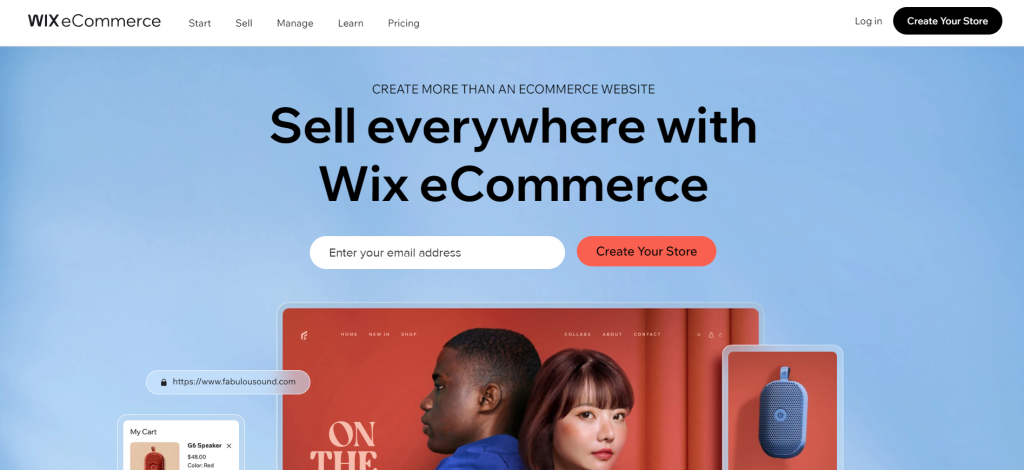
Wix serves as an e-commerce platform that integrates SEO features. Noteworthy brands like Coca-Cola, Nike, and Samsung utilize it. Its key features encompass:
- An embedded SEO wizard to optimize your site’s search engine rankings.
- A variety of templates and designs to tailor your store according to your preferences.
- An intuitive interface that ensures easy navigation for customers.
- A built-in blog tool to generate content for enhanced SEO.
Wix also offers a Robots.txt editor for precise SEO adjustments and supports bulk 301 redirects and affiliate tags.
Pricing: VIP is $25.50/month; Unlimited is $12.50/month; Combo is $8.50/month; and Connect Domain is $4.50/month. These are the four Premium options from which to choose.
Also Read: Wix vs WordPress SEO: Which is Better?
Squarespace
Squarespace is widely used for its versatile functions and features, making it a preferred platform for major brands such as Anine Bing, Vogue, and GQ. Despite functioning as a straightforward website builder, it seamlessly integrates social media sharing across all product pages and supports the Yoast SEO plugin.
While Squarespace comes with a relatively higher price tag, it proves to be an excellent choice for those looking for a simple yet effective way to create an aesthetically pleasing website. Its mobile-friendly design ensures compatibility with smartphones, and the built-in blogging capability adds to its appeal.
The Squarespace community provides substantial support, and for a more personalized approach, exploring custom web development services and consulting a professional team is an option.
Pricing: Squarespace offers four plans: Personal at $14 per month, Business at $23 per month, Basic Commerce at $27 per month, and Advanced Commerce at $49 per month.
Volusion
Volusion caters to individuals who prioritize business customization and emphasize SEO for their online store. It allows you to create a platform that aligns with your specific ideas and is utilized by well-known brands such as Sony, Ford, and Coca-Cola.
Key features for seamlessly running a cannabis site include:
- A built-in CRM tool for customer and sales management.
- Inventory management system for tracking products.
- Shipping calculator to determine order shipping costs.
- Fraud detection system to protect your SEO-optimized e-commerce store from fraudulent orders.
- Payment gateway for accepting credit card payments.
Volusion also offers SEO-focused features:
- Sitemap generator for creating a store sitemap.
- XML sitemap to aid Google in indexing your store.
- Keyword research tool to identify relevant target keywords.
- Link-building tool to establish links to your store.
To start selling, you can use your preferred checkout options and software. Another aspect of SEO management involves utilizing a tool to enhance your website’s search engine ranking.
Pricing: Annual plans are more economical than monthly ones and are as follows: Personal – $35/month, Professional – $79/month, Business – $299/month. The fourth package, Prime, is based on Gross Merchandise Volume (GMV).
Magento (Adobe Commerce)
Adobe Commerce, previously known as Magento, provides a range of options and features for developing notable solutions, albeit requiring significant developer expertise. It is favored by some of the world’s largest brands.
Compared to other e-commerce platforms, Magento is more intricate and designed specifically for developers seeking customization. It offers various features, such as:
A flexible architecture that allows developers to create custom modules.
Numerous themes and templates for customizing stores.
An extensive API that facilitates integration with third-party applications.
Built-in tools for store management, including an order management system, shipping calculator, and payment gateway.
While Adobe Commerce, contributing to Adobe’s annual gross revenue of $100 billion, may not be the most user-friendly platform, it stands as a robust e-commerce solution. Users can enhance their website capabilities through plugins and third-party add-ons, including SEO add-ons with CRO functions to improve page load times.
Pricing: Magento offers different services, with Magento Commerce priced at $22,000–$125,000 per year, hosting starting at $100–$500 per year, and design costs ranging from $0 to $5,000 or more.
Weebly
Weebly is a solid option for smaller businesses and is trusted by major brands like Nike and General Electric.
The platform comes equipped with a range of SEO tools designed to improve your website’s search engine ranking, and it includes many automated features for added convenience. Additionally, Weebly offers a diverse set of features to help streamline your business operations.
Pricing: The service is available for free. However, there are also various paid plans: Personal ($6/month billed annually or $9/month billed monthly), Professional ($12/month billed annually or $16/month billed monthly), and Performance ($26/month billed annually or $29/month billed monthly).
Craft Commerce
Craft Commerce might not have the same level of familiarity as some other platforms, but it’s worth considering. It is more complex than some of the e-commerce platforms mentioned here, making it a good fit for developers who value customization. Craft Commerce offers a broad range of essential features.
Pricing: The service provides a free option and two paid plans: Pro ($299 per project) and Enterprise (pricing determined based on the specific project).
Why Is SEO Essential For E-Commerce Websites?
Efficient SEO is vital for e-commerce websites as it improves their visibility on search engines. This, consequently, results in more visitors and ultimately boosts sales. Various factors influence a website’s visibility, including the use of keywords, the quality of content, and the number of inbound links.
E-commerce SEO focuses on the parameters that search engines like Google use to rank content. These factors include user experience, keywords, title tags, and meta descriptions. Furthermore, it’s essential to consider user experience elements such as website loading speed and mobile-friendliness when choosing an e-commerce platform for your CBD website.
Features To Consider In E-Commerce Platforms
Understanding the SEO capabilities of an e-commerce platform is essential for the success of a website. Each e-commerce system comes with unique features that are friendly to search engine optimization (SEO). Here are some key features to look for in your e-commerce software:
Site Speed
Optimal website performance relies on speed, a crucial factor. Slow-loading websites can frustrate visitors and have a detrimental impact on your search engine ranking. Effective e-commerce platforms for SEO incorporate various speed optimization features, including caching and modifications.
When selecting a hosting plan, prioritize those that enhance server response times to meet the growing demands of e-commerce sites. Elevate site speed by implementing strategies like browser caching, image resizing, size optimization, script minification, and Content Delivery Networks (CDNs).
Opt for a platform that prioritizes efficiency to boost your website’s speed. Leading e-commerce systems for SEO offer a range of performance optimization capabilities, such as caching and customization. Hosted solutions like Shopify and BigCommerce may deliver standard site performance, which might not stand out. If your business is small and speed holds significance for SEO, explore whether a self-hosted SEO approach provides greater control.
Canonical Website URLs
An essential aspect of any e-commerce platform is having canonical website URLs. These URLs ensure that when someone accesses your site from a mobile device, they’re seamlessly redirected to the mobile version. This redirection is crucial because it channels all traffic to your main website, which helps improve your search engine ranking.
Without canonical URLs, each page on your site might have its own unique URL. This could lead search engines to index multiple URLs for the same webpage, causing duplicate content issues that can harm your website’s ranking. Platforms that offer canonical URLs automatically redirect mobile users to the appropriate URL, preventing duplicate content problems and boosting your search engine ranking.
Customizable HTML And Meta Data
Customizable HTML and metadata serve two crucial purposes. Firstly, they allow you to make changes to your website’s code, potentially improving its ranking on search engines. Secondly, custom meta tags help refine how your website appears in search results.
Popular e-commerce platforms like Shopify offer both of these features. For example, Shopify includes a tool for editing HTML code and allows users to add custom meta tags to individual webpages. This can boost your website’s visibility in search results, making it more likely for users to engage with it.
Similarly, BigCommerce also provides an HTML editor and the ability to add custom meta tags. However, its editor might be less user-friendly compared to Shopify’s, especially for those who aren’t familiar with coding.
On the other hand, Volusion lacks both a customizable HTML editor and support for custom meta tags. This limitation is important to consider when deciding which platform to use.
Adobe Commerce, Wix, and Squarespace offer customizable HTML editors but do not allow for custom meta tags. As a result, users are restricted to using default meta tags, which may not produce the best results compared to personalized meta tags.
Indexing Control
Indexing control is about guiding search engines on which pages of your website they should include in their search results. This is important because it helps filter out irrelevant pages that aren’t related to the main keywords of your website.
Good website platforms for SEO typically offer indexing control through a sitemap feature. A sitemap is a file that lists out all the pages on your website. By submitting your sitemap to search engines, you can ensure that only the pages you want are included in their search results.
Platforms like Shopify, BigCommerce, and Volusion come with sitemap functionality built-in. However, Wix, Squarespace, and Adobe Commerce don’t have this feature. As a result, you’ll have to manually submit your website’s sitemap to search engines, which can be time-consuming and require effort.
Mobile Optimization
Mobile optimization is important because more and more people are using mobile devices to browse the internet. It ensures that your website works well and looks good on smartphones and tablets. Google also prefers websites that are optimized for mobile.
By optimizing your site for mobile, you make sure that everyone can access it easily. This includes adjusting the font sizes and ensuring the pages load quickly on different devices, especially through e-commerce platforms.
The top e-commerce platforms provide themes that automatically adjust to different screen sizes, ensuring mobile-friendliness. While all the platforms mentioned offer some level of mobile optimization, Shopify, BigCommerce, and Volusion are excellent choices for SEO in 2025. If improving your website’s search engine ranking is your goal, these platforms are worth considering.
Also Read: Product Page SEO: The Missing Link in Your E-commerce Strategy
How To Choose The Best ECommerce Platforms?
Businesses often move to a hosted platform without fully understanding how it will affect their SEO strategy, leading to outcomes that go against their goals. When choosing an e-commerce platform, it’s crucial to consider its impact on SEO. It’s also wise to look into online reviews.
Migration
When thinking about moving your current website to a new platform, your primary concern should be how feasible the transition is. Evaluate the amount of content, products, and customer data you have to make sure the chosen platform can handle it effectively. Also, think about how easy it will be to transfer your existing SEO data, including title tags, meta descriptions, and backlinks.
The best e-commerce platforms will offer a smooth migration process, saving you from rebuilding your online presence from scratch. This helps minimize disruptions to your operations and preserves the visibility and ranking your website has worked hard to achieve.
Batch Uploading
Efficiently managing a large inventory relies heavily on the smooth batch uploading of products. This process needs to be simple and error-free to ensure maximum productivity. A good e-commerce platform prioritizes a batch uploading feature that is easy to use, making it quicker to get products online.
Your ability to perform batch uploads on hosted platforms depends on the capabilities of your plugins. If you don’t have access to the necessary files, hosted platforms might limit you to manual file uploads through a web interface, which can be a tedious process that’s best avoided.
Before deciding on a plugin, it’s important to weigh its simplicity against any potential drawbacks. While a plugin might seem affordable at $69, it could lack compatibility with future platform updates, leading to disruptions and additional costs. These setbacks could have a significant impact on both your time and finances.
Choosing the best e-commerce platform for SEO requires careful consideration of its long-term implications.
Canonical Tags
The canonical tag in HTML is crucial for dealing with duplicate content on websites. It tells search engines which version of a page is the original and helps identify any duplicates. This is important because it prevents multiple versions of the same page from competing for the same ranking in search results.
If canonical tags are not handled properly, it can result in many pages being incorrectly identified as “canonicalized to themselves” by Google, even if they shouldn’t be. For instance, in the source code, you might see something like this:
<link rel=”canonical” href=”https://mjseo.agency/best-e-commerce-platform-for-seo” />
This means that the page is being treated as canonical to itself, which is not what we want.
Good-quality e-commerce platforms usually offer tools to manage canonical tags effectively, reducing the risk of duplicate content causing problems.
Robots.txt
The robots.txt file helps search engine crawlers understand which pages they should include in their index and which ones they should ignore when scanning your website. It’s important because it helps prevent Google from indexing duplicate or low-quality pages, which could negatively impact your website’s search engine optimization by reducing its perceived quality in Google’s eyes.
When you host your own website, you have more control over your robots.txt file, allowing you to edit it as needed directly. While Shopify doesn’t offer complete access to the robots.txt file, other platforms like WordPress, Craft Commerce, and BigCommerce allow you to make the necessary adjustments.
Log File Access
Log files contain important information about your website, including which pages were visited, when, and who accessed them. This data is crucial in identifying and fixing website problems, such as pages not appearing on Google searches. By accessing log files, you can detect errors like “404 Page Not Found,” analyze how Google’s web crawling software interacts with your site, and make necessary changes to your site’s map for search engines.
Access to log files is often restricted on platforms where a service provider hosts your website. You must rely on the provider’s customer support to resolve any issues. However, this can lead to delays in getting help and cause frustration. On the other hand, if you host your website yourself, you have direct access to the log files. This allows you to troubleshoot problems efficiently, saving time and reducing frustration.
Content Marketing And Blogging
Content marketing involves creating and sharing valuable content to engage and retain customers. This content comes in various forms like blog posts, posts, infographics, and videos, all aimed at providing useful information to your target audience.
Blogging plays a vital role in driving traffic to your website and improving your SEO. By including relevant keywords in your blog posts, you increase the chances of your website showing up in search engine results. Moreover, linking back to your website from your blog posts helps to establish its credibility.
Leading e-commerce platforms in 2025, such as WordPress, BigCommerce, and Shopify, offer robust features for content marketing and blogging. However, if you plan to transfer a significant amount of content or prioritize customization, WordPress is likely the most suitable option.
Using a hosted e-commerce platform may mean hosting your blog on a subdomain, which could potentially lessen the SEO impact of your content. If you’re transitioning to Shopify or BigCommerce, it’s recommended to use a subdomain workaround.
Stage Environment
A staging environment acts as a replica of your live website, allowing you to test out modifications before applying them to your actual site. This precautionary step is essential because it enables thorough testing without the risk of disrupting your live operations.
Leading e-commerce platforms provide the option to set up a staging environment, making it easier to carry out testing before making changes live. Platforms such as WooCommerce, Shopify, and BigCommerce include staging environments specifically designed for this purpose.
While any website can serve as a staging environment, the complexity may vary depending on your chosen platform or hosting service. Opting for a self-hosted platform like WordPress, Craft Commerce, or Adobe Commerce typically yields better results. These platforms offer more flexibility and control over the testing process, ensuring a smoother transition of changes from staging to live environments.
Security
Ensuring your e-commerce platform’s security is crucial for protecting your customers’ sensitive data. Strong security measures are essential to defend your website against potential hacking threats. Features like SSL certificates, two-factor authentication, and malware scanning play a vital role in strengthening your platform’s defenses against cyber attacks.
Platforms such as WooCommerce, Shopify, BigCommerce, and Adobe Commerce are well-regarded for their robust security features, helping safeguard your website from malicious activities. Choosing a platform that includes these security measures is a wise decision to maintain your website’s integrity and protect your customers’ data confidentiality.
Conclusion
In conclusion, when deciding on the best e-commerce platform for SEO, weighing various factors is essential. Start by determining whether a hosted or self-hosted solution is preferable. Then, prioritize features that cater to your business needs. Finally, ensure the chosen platform prioritizes security to protect customer information.
The comparison table provided is a valuable resource for making an informed decision.
| Platform | Summary |
| Woocommerce | It is well-known for its powerful SEO skills and the availability of 1-click selling apps. It has a large number of service providers. Users may face difficulties with pricey hosting, debugging, and dependency on various extensions. |
| BigCommerce | Offers ease of use and excellent SEO performance and is fully optimized for e-commerce. Yet, it suffers from slow loading speeds and imposes higher costs on high-volume retailers. |
| Wix | Praised for its abundance of free, high-quality themes and user-friendly setup, Wix features marketing automation. However, it falls short in SEO performance, upselling capabilities, and integration with Amazon. |
| Shopify | Notable for its speed and user-friendliness, it is favored for dropshipping and beginner-friendly e-commerce. Nonetheless, it lacks in SEO, content marketing, and customization options. |
| Adobe Commerce | Renowned for its robust features and strong SEO, Adobe Commerce offers 1-click selling apps. However, its expensive themes and tendency to slow down detract from its appeal. |
| SquareSpace | Rated highly for SEO, SquareSpace offers a simple, small business-friendly service with attractive template designs. Nevertheless, its limited e-commerce connections and payment options are notable drawbacks. |
| Volusion | With a user-friendly interface and helpful onboarding process, Volusion includes subscription and recurring payment features. Yet, it suffers from longer loading times and outdated site designs. |
| Weebly | Offering an easy-to-use website builder with e-commerce capabilities, Weebly is suitable for beginners. However, those seeking robust SEO performance may need to explore other options. |
| Craft Commerce | While flexible and powerful, Craft Commerce is easy to use and customize. However, its pricing may deter some users, and it lacks certain features compared to competitors. |
FAQs
What factors make an e-commerce platform ideal for SEO?
An e-commerce platform ideal for SEO should allow extensive customization to optimize on-page elements such as title tags, meta descriptions, and URLs. Additionally, it should support mobile responsiveness, fast loading times, and structured data implementation to improve visibility on search engines.
How important is mobile optimization for e-commerce SEO, and which platforms excel?
Mobile optimization is highly important for e-commerce SEO due to the growing use of smartphones for online shopping. Platforms like Shopify, BigCommerce, and WooCommerce prioritize mobile responsiveness and fast loading speeds to ensure a smooth user experience across different devices, boosting search engine rankings.
Are there any emerging e-commerce platforms that excel in SEO for 2025?
In 2025, emerging e-commerce platforms such as BigCommerce and Squarespace are recognized for their SEO capabilities. BigCommerce offers features like customizable URLs, automatic sitemap generation, and integration with SEO tools. Squarespace, known for its user-friendly interface, provides SEO-friendly templates and tools to optimize site structure and content.
How do e-commerce platforms address technical SEO aspects like crawlability and indexability?
E-commerce platforms address technical SEO aspects such as crawlability and indexability to ensure search engines can access and index website content effectively. Platforms like Shopify, WooCommerce, and BigCommerce offer features like customizable robots.txt files, XML sitemaps, and canonical tags to manage crawling and indexing directives, improving website visibility in search engine results.
